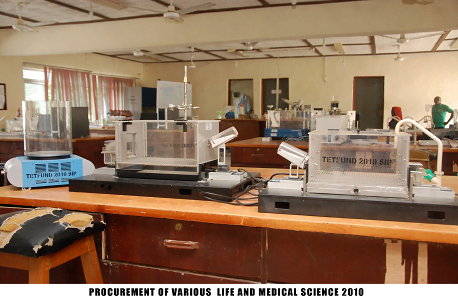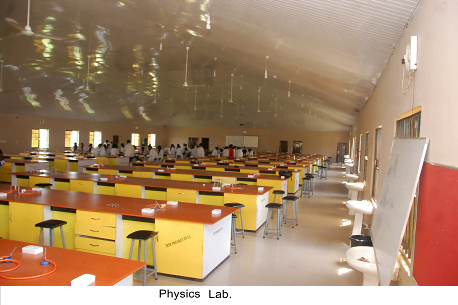The Department of Medical Biochemistry was recently created in the Faculty of Basic Medical Science to provide a focused service to the MBBS/BDS and other allied Medical programmes of the University.
This is based on the premise that advances in Medicine should emphasize interpretative aspects and clinical correlations, reflecting close professional relationship between clinical chemists and practicing clinicians.
In contemporary medical practice, most clinical diagnoses stem from an understanding of the pathological causes. To interpret these pathophysiological processes, it is inevitable to make use of the fundamental principles of biochemistry that govern their functions within the molecular pathways of human body.
Recommended articles specially for you
- How to Easily Gain Admission into Delta State University (Delsu)
- How to Pass DELSU Post utme (Absolute Guide)
- Top 4 Mistakes Delsu Aspirants Make – (Number 2 will shock you)
- How to Check Your DELSU Post UTME Result Easily
- Delsu Change of Course & How to Apply (Guide)
- Updated List of All the Courses Offered in Delta state university
- 7 Understandable Reasons Why you will NOT GAIN Admission into DELSU
A thorough understanding of the biochemical concepts not only helps address the key problems in human health and disease, but also provides clues for the prevention, medical intervention, treatment and management of disease.
Furthermore, the advances in human genomics and proteomics have made very extensive contributions to the fields of medical sciences. The necessity for learning these essentials of modem biochemistry and molecular biology is now becoming a fundamental part of the medical education.
Mission of the Medical Biochemistry & Genetics Department
Our mission for the medical education is to ensure that students:
- Learn the essentials of biochemistry and molecular biology and relate to other medical disciplines;
- Apply the biochemical concepts comprehensively for solving health-related problems in their clinical practices.
Synopsis of the medical Biochemistry curriculum.
In the field of Medical biochemistry, the department teach the basic principles of biochemistry that govern human physiology in health and in diseases. The course is designed to link basic biochemistry to Nutrition, physiology, pathology, pharmacology and clinical diagnosis.
Students will initially learn about the structural and basic functions of nucleic acids, proteins, lipids and carbohydrates. The biosynthesis, trafficking and degradation of macromolecules and their relevancy to health and diseases will be discussed.
Principles of enzyme catalysis and characterization of enzyme inhibitors as drugs will be introduced, followed by a discussion of the basic biochemical principles to understand the functions of blood.
Fuel metabolism session will discuss energy conversion in our body, how foods are digested and absorbed, ATP is synthesized and being utilized in various cellular coupling processes.
Students will learn all major pathways that regulate carbohydrates, amino acids, nucleic acids and lipids metabolism.
Special emphasis is put on their interrelationships in different organs, physiological and disease states.
Clinical correlation in each of the metabolic pathway are discussed including diabetes and hypoglycemia, lysosomal storage diseases, hypercholesterolemia and atherosclerosis.
The final part of the course focuses on cellular responses to oxidative damages, drug metabolism, alcoholism, hormonal regulation and the biochemistry underlying inflammation and cancer proliferation.
Instructional Features:
Lectures:
Topics are specially selected for our students so that contemporary biochemical concepts are learnt with the relevance to human health and disease.
The Medical Biochemistry has approximately 120 hours of lectures broken into medical biochemistry 1 & 2 and conducted over 2 semesters.
It deals with the chemical characteristics of biomolecules and how these characteristics can contribute to the physiological functions and how these biomolecules are metabolized in the body and how a disturbed metabolic profile can contribute to the onset and progress of a pathological condition.
Practical:
The experiments designed in each of the practical classes are not only to illustrate and complement the lectures, but are also aimed to provide an extensive experience of contemporary biomedical and molecular techniques to the students.
DESCRIPTION OF MEDICAL BIOCHEMISTRY COURSES
Medical Biochemistry is an essential component of curriculum for all categories of health professionals. Contemporary Biochemistry plays a crucial role in the Medical field, be it metabolic pathways, storage diseases, mechanism of action of varied biomolecules or inter and intra cellular communications.
Medical biochemistry integrates and summarizes the essentials of the core subject. Topics are carefully selected to cover the essential areas of the subject for under-graduate level of Health sciences.
The major themes include:
- Conformation of biomolecules, structure and their relationship to biological activity
- Synthesis and degradation of major metabolites
- Production and storage of energy
- Biocatalysts and their application
- Intercellular communication by hormones
- Molecular events in gene expression and regulation
Enzymes:
Body proteins perform a large number of functions. One such unique function is, they act as biological catalysts (Enzymes) .They are responsible for highly complex reactions.
They direct the metabolic events and exhibit specificity toward substrates, regulate the entire metabolism. Thus, they play key role in the degradation and synthesis of nutrients, biomolecules etc.
The most important diagnostic procedures involve assay of enzymes. They assist to know damaged tissues, the extent of tissue damage, help to monitor the course of the disease and used as a therapeutic means of diagnosing a vast array of diseases.
Amino acids and Proteins
Living systems are made up of Proteins .They are the dehydration polymers of amino acids. Each amino acid residue is joined by a peptide linkage to form proteins.
Proteins are the molecular instruments in which genetic information is expressed, Hormones, Antibodies, transporters, the lens protein, the architectural framework of our tissues and a myriad of substances having distinct biological activities are derived.
The type, nature and number of amino acids impart characteristic properties to the proteins.
There are about 300 amino acids, but only 20 are coded by DNA of higher organisms. Acid base properties of amino acids are important to the individual physical and chemical nature of the protein. The structural organization of proteins could be primary, secondary, tertiary and quaternary.
The three dimensional structure is the most biologically active one. The unfolding and disorganization of the proteins results in denaturation, the process is mostly irreversible.
Such a protein may lose its biological function. Many amino acid derived peptides are of biological importance and special products formed from them are of critical importance to the body.
Carbohydrates
They are biomolecules, found abundantly in living organisms. They contain more than one hydroxyl group (polyhydric) In addition to aldehyde or ketone group.
Thus, they form in to polyhydroxy aldoses or polyhydroxy ketoses. Carbohydrates can be classified in to Monosaccharide, disaccharide, and polysaccharides.
Mono is the smallest sugar unit, disaccharide is made up of two monosaccharides joined by glycosidic linkages .
The linkage can be a or p. A polymer with more than 10 monosaccharide units is called polysaccharide.
Carbohydrates have a wide range of functions. They provide energy; act as storage molecules of energy. Serve as cell membrane components and mediate some forms of communication between cells.
Absence of a single enzyme like lactase causes discomfort and diarrhea.
The failure of Galactose and fructose metabolism due to deficient enzymes leads to turbidity of lens proteins (Cataract).
Blood glucose is controlled by different hormones and metabolic processes. People suffer from Diabetes if the insulin hormone is less or not functioning well, such people are prone to atherosclerosis, vascular diseases, and renal failure.
Integrative Metabolism and Bioenergetics
Oxygen is utilized for the conversion of glucose to pyruvate. The same metabolite also forms from amino acid and protein metabolism.
Other precursors like Glycerol, propionate can give rise to pyruvate. The main breakdown product of pyruvate is acetyl Co A, which is the common intermediate in the energy metabolism of carbohydrates, lipid and amino acids.
It enters central metabolic pathway, the Citric acid cycle in the mitochondrial matrix. Here it is converted to C02, H20 and reduced coenzymes. (NADH, FADH2).
These reduced nucleotides are the substrates for oxidative Phosphorylation in mitochondria, their oxidation provide the energy for the synthesis of ATP, the free energy currency of cells.
Lipids
The bulk of the living matter is made up of Lipids, carbohydrates and proteins. Lipids are water insoluble, but can be extracted with non-polar solvents like Benzene, methanol or ether.
Some lipids act as storage molecules for example triglycerides stored in adipose tissue. Transport forms of lipids (Lipoproteins), are present in combination with proteins.
Building blocks of lipids are fatty acids. Some lipids like cholesterol lack fatty acids but are potentially related to them.
Lipids are constituents of cell membrane and act as hydrophobic barrier that permits the entry/exit of certain molecules. Lipids carry fat soluble vitamins and form special biomolecules.
Lipid imbalance can lead to serious diseases like obesity and atherosclerosis. Break down of fatty acid produce energy, excessive breakdown cause ketosis, ketoacidosis, coma and death.
Cholesterol level in blood is controlled by several regulatory mechanisms. Such information is applied in the treatment of patients with high cholesterol levels.
Vitamins and Minerals
They are organic compounds required in small quantities for the functioning of the body. They are not synthesized in the body, needed to be provided in the diet.
Vitamins do not generate energy. Generally they are responsible for the maintenance of health and prevention of chronic diseases. Grossly there are two groups’ Water soluble vitamins are Vit. B-complex and C. Fat soluble vitamins are Vit A, D, E, and K. Minerals are elements present in human body.
Elements like C, H, and N are provided by the diet and water. Second group includes Ca, P, Mg, Na, K. Cl and Sulphur. These are required in large quantities (lOOmg or more/day).
They are called Macro elements. A third group includes trace elements, which are required in small amounts for example Fe, I, Zn, etc.
The metabolic role and deficiency disorders are important for the students of health sciences. Vitamins and trace elements are particularly important for patients with gastrointestinal disorders, who are fed on artificial diets or parenteral nutrition.
Hormones
Hormones are chemical messengers secreted by endocrine glands and specific tissues. They reach distant organs and stimulate or inhibit the function.
They play important role in carrying messages to the various organs. They form part of a signaling system. Hormones are synthesized in one tissue, secreted in to blood, transported as mobile messengers.
When they reach target tissue, they exhibit their actions. Defect in the secretion, function, metabolism can lead to various diseases.
The department can regard the endocrine system as having the following physiological missions
- Regulation of sodium and water balance: preservation of the volume/pressure reservoir required for tissue perfusion
- Regulation of calcium balance: preservation of extracellular fluid concentrations required for membrane integrity, intracellular signaling, hemostasis, etc., and preservation of skeletal integrity ~
- Regulation of energy balance: preserving, accessing, and interconverting metabolic fuels to meet cellular energy demands
- Coordination of processes for coping with a hostile environment.
- Coordination of growth and development.
From this perspective, it is clear that at least some aspect of virtually every physiological system lies within the realm of endocrine control.
No single hormone or endocrine gland can accomplish any of these missions alone, and virtually every hormone participates in fulfilling multiple missions.
Consequently, students need to understand not only how hormones act but also how they interact. Some basic concepts transcend the wide range of physiological actions of hormones and may provide a foundation for understanding hormonal regulation.
Many of these concepts are also the bases for diagnosis and treatment of endocrine disorders.
- Concepts related to control of hormone secretion
- Understanding negative feedback lies at the heart of understanding endocrine control systems. Concepts related to control of hormone secretion
- Concepts related to specificity
Because of “internal secretion” of hormones into the blood, hormones are widely disseminated throughout the body and have access to virtually all cells. However, only certain cells respond to any particular hormone.
These “target” cells differ from all other cells in the respect that they express receptors for that hormone. - Concepts related to target cell responsiveness
Responsiveness of target cells to stimulation by their hormones is not constant but may vary widely in different physiological states and is often adjusted by the actions of other hormones or local paracrine agents as well as the primary hormone. - Concepts related to integration
- hormones seldom act alone or on a single tissue in carrying out their missions of regulation and coordination.
Molecular Biology
Human beings are highly developed species. How a person looks, behaves, suffers from diseases and the like are dictated by genetic material called DNA.
The information is inherited from parent to offspring. The same is replicated from parent DNA to daughter DNA.
Individual characters are translated in to proteins, under the direction of DNA. First RNA is synthesized from DNA (Transcription) which is translated in to Proteins. These proteins are responsible for various metabolic functions.
Protein expression during development, adaptation, aging and other related processes of life are controlled by DNA. Changes in the genetic material cause hereditary diseases.
The ways to learn Biochemistry
Through didactic lectures, tutorials and practical instructions, the department of medical biochemistry offer excellent opportunities for students to learn the basics of biochemistry and molecular biology which are the ultimate level of explanation for the derangements of biochemical processes in diseases.
A good following of biochemistry helps a better learning of the other branches of medicine and vice versa.
Initially, the student should be encouraged to recognize that biochemistry is a continuum of organic chemistry and how scientists from varied backgrounds have contributed to the understanding of life in molecular terms.
Competencies:
In completing this course, the students will have acquired the basic knowledge in biochemistry that is related to physiology, pathology and pharmacology, the etiology of various diseases and their diagnostic methods.
The students should have gained thorough understanding on the importance of nutrition as the front line treatment and prevention of diseases.
The goal of this course is to build the foundation of biochemistry knowledge that allows students to enter clinical sciences with an understanding of the molecular basis of diseases and their treatments.
Assessment:
There are formal examinations conducted at the end of each semester and comprise written papers and practical examinations as well as a continuous assessment of each student’s performance.
Delta State University Contact Address
Delta State University
Address: P.M.B. 1, Abraka Delta State, Nigeria
Email: registrar@delsu.edu.ng
Mobile Contact: +2348134123751
List of Available Departments in Delta State University
For some certain reasons, you are not able to find what you hoped you will find in this particular Delsu Department, we have taken our precious time to create a list of all the available departments in the prestigious Delta state University.
You can click here or the below button to see the full list of all the current departments in Delta state University, don’t forget to keep your eyes open for the accredited departments in delta state university.
Full List of All Departments in Delta State University
Everything you need to know about Delsu
 Delta State University which is popularly known as DELSU, is one of the most prestigious state owned university in Nigeria.
Delta State University which is popularly known as DELSU, is one of the most prestigious state owned university in Nigeria.
Delsu currently operates a multiple campus system with three distinct campuses, which are about 200 km apart.
The University has its main Campus located at Abraka, Delta State and other campuses in Anwai-Asaba and Oleh which are still in the same state, Delta.
Delta State University is one of the 25 federal universities that is been controlled, overseen and accredited by the National Universities Commission.
As of the time of this post, the University offers a wide range of educational programs, ranging from full time certificate, degree and diploma programs to part time weekend and evening degree programs.
Delsu also offers post graduate studies up to doctorate level.
The University possesses a student/staff counselling centre, an e-learning centre, students and lecturers accommodation facilities, sporting complex and host of other amenities.
This unique university boasted of about 36,000 student population as at the 2007/2008 academical session.
Frequently Asked Questions about Delsu
We took our time to research about the frequently asked questions about Delsu and came up with a bunch of them.
What is the full meaning of Delsu?
Delsu is an abbreviation for Delta State university.
When was Delsu founded?
Delta state university was established in the year 1992.
What is the motto of Delta State University (Delsu)?
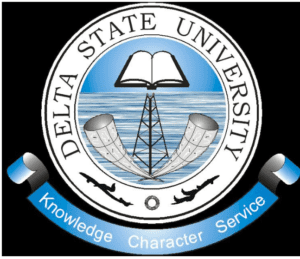 Knowledge Character and Service.
Knowledge Character and Service.
What is the official website of Delta state university (Delsu)?
The university has two official websites which it uses to disperse information to the public.
www.delsu.edu.ng and www.delsuonline.com
www.delsu.edu.ng offers every thing you need to know about the school such as weekly bulletins, library information, gallery, students admission status, etc.
While www.delsuonline.com offers portal services such as, students and admin logins, printing of school fees receipt, replacement of Lost identity cards, result checking, printing of departmental courses, etc.
Does Delsu offer Scholarships?
Delta state university offers scholarships, bursary, grants and different awards. The University has a special scholarship plan and grants to various categories of students.
Is Delsu a federal or state University?
Delta state university is a state owned university, which is overseen and accredited by the National University Commission
Where is Delsu Located?
Delsu is located in Delta state, Nigeria. It has it’s main campus in Abraka and other campuses in Anwai-Asaba and Oleh.
The History of Delsu
 Delta State University(Delsu) was generally recorded as a center of Education.
Delta State University(Delsu) was generally recorded as a center of Education.
It began as a Government Teacher’s Training college during the colonial period and a few years into the post colonial times.
Delsu became an educational college that awarded the Nigerian Certificate of Education (NCE) from the year 1971 to 1985.
The University got affiliated with the University of Benin in the year 1981, and started offering degree programmes from 1981 till 1985.
Before it became the faculty of Education of the then Bendel State University with its main campus in Ekpoma.
The creation of Edo and Delta states in the year August 1991 and the conversion of the formerly known Bendel University Ekpoma, in December 1991 triggered the establishment of the independent Delta State University Abraka.
This move was carried out by the then Executive Governor of the state, Olorogun Felix Ibru on the 30th of April 1992.
Delta State University began with Five faculties at its early stage:
- Faculty of Education.
- Faculty of Agriculture.
- Faculty of Arts.
- Faculty of Science.
- Faculty of Social science.
In the year 1995, the State government enacted a policy which enabled the University to posses 3 campuses.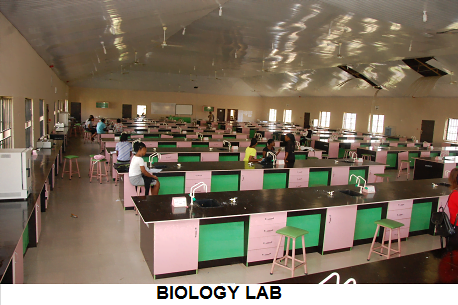
These campuses were distributed within the 3 senatorial districts of Delta state.
As a result of this enacted policy, the main Campus was established in Abraka, and the other campuses were established in Anwai-Asaba and Oleh.
Delsu Campuses and Their Faculties.
Delta State University’s academical programmes/faculties are currently distributed among the Campuses below.
Delsu Abraka Campus
 Abraka is an urhobo kingdom in Delta state, which has been made popular due to the fact that the main Campus of Delta state university (Delsu) is located there.
Abraka is an urhobo kingdom in Delta state, which has been made popular due to the fact that the main Campus of Delta state university (Delsu) is located there.
Faculties in Delsu Abraka Campus.
- Faculty of Education
- Faculty of Art
- Faculty of Social science
- Faculty of Pharmacy
- Faculty of Science
Delsu Anwai- Asaba Campus.
 Asaba is a city found in Delta state, which is located at the western edge of the Niger River.
Asaba is a city found in Delta state, which is located at the western edge of the Niger River.
It is a fast growing urban area which possesses one of the Delta state university’s campuses.
Faculties in Anwai-Asaba campus
- Faculty of Agriculture
- Faculty of Accountancy
- Faculty of Environmental Studies.

Oleh Campus
Oleh, the headquarters of the Isoko south local government area is home to one of the Delta State University Campuses.
It was established as a result of the amended Edict in the year 1995
Facilities in Oleh Campus
- Faculty of Law
- Faculty of Engineering

Delsu Hostel Accommodation (Halls of Residence)
The state owned university offers a wide range of accommodation for both post graduate and undergraduate students.
These Halls of residence are distributed through out the various campuses.
Abraka Halls of Residence (hostel)
Male Accommodation
- Abraka hall for males
- Canon Mason Hall for males
- Medical hostel
Female Accommodation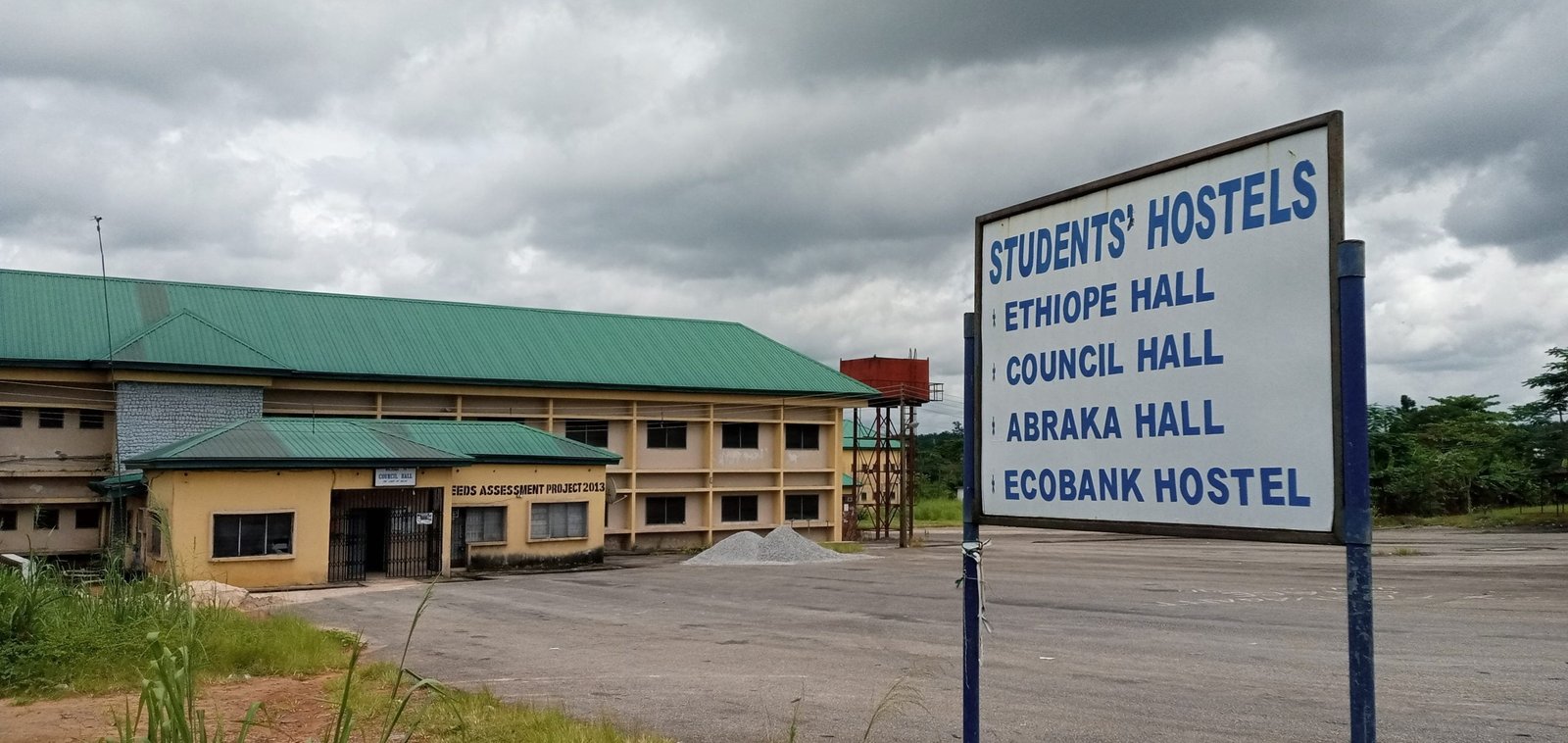
- Council Hall .
- Eco hall
- Ethiope hall
- Medical Hostel
- NDDC Hall
- Executive Hostel
Anwai halls of residence (hostel)
Male Accommodation
- Council Hall
Female Accommodation
- Asaba Hall
- Niger Hall
- NEEDS assessment hall
Delsu Oleh Halls of Residence (hostel)
Male accommodation
- Two government hostel
- Brooklyn hall
Female Accommodation
- Two Government Hostels
- Isoko Development Venture hostel
- Women Affairs Hall
See What Others are Reading
- How to Prepare a Personal Reading Time Table
- How to Improve your School grades
- 7 Degree Courses that will keep you self employed
If are unable to find what you are looking for here or maybe you have any correction regarding this post, kindly DROP A COMMENT below and we will respond to you as soon as possible.
Didn't find what you were looking for? Search here



